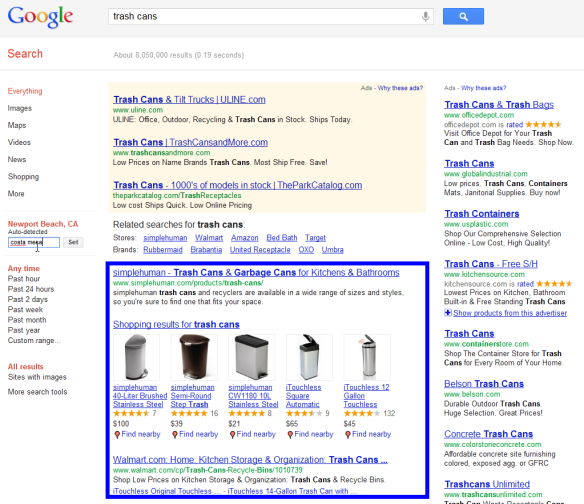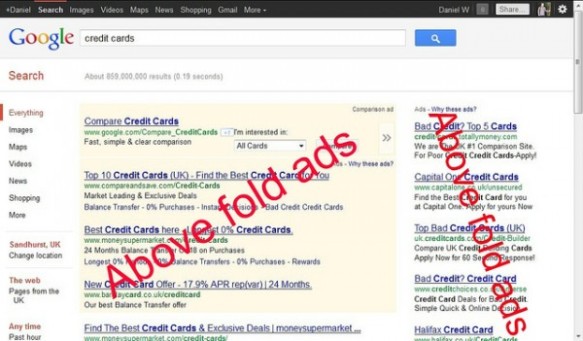Africa, a Continent of Superlatives
With an increasing population of about 1 billion which equals 15% of the world population and an area of 30.3 million km², Africa is a highly important and big part of our earth. The “poor continent” copes with huge difficulties and is basically depending on our help. More than 10% of its population suffer from malnutrition and only 0,8% receive food aid.
Money Can’t Solve all Problems
Facts like these, urged countries/organizations/companies and citizens to donate money for Africa. Who doesn’t know the signs and advertisments that call on us to grasp the nettle and donate money for Africa, money that often does everything but help. Money, that is abused by certain groups and people, that supports corruption and that is used desultorily. And even if the donations are used appropriately, there is still one thing they bring in their wake: NOTHING!
 Because most donations are unsustainable, they might help a regional group of people to have something to eat, but it’s all temporary. They don’t decrease government expenses and in fact lead to a dependency and a decline in autonomy. Africa needs Sustainability, Tyler Suiters believed and went on a trip to South Africa where a new, sustainable form of help has been introduced : Solar Ovens
Because most donations are unsustainable, they might help a regional group of people to have something to eat, but it’s all temporary. They don’t decrease government expenses and in fact lead to a dependency and a decline in autonomy. Africa needs Sustainability, Tyler Suiters believed and went on a trip to South Africa where a new, sustainable form of help has been introduced : Solar Ovens
A Lack of Alternatives
Solar Ovens…to inhabitants of a developed country, it sounds like another green, hippie-like project that some might buy in order to ease their conscience. To the people in Africa, the meaning is totally different because their lacking in alternatives. In a place without any accessability to electricity but 320 days of sun per year, people, mostly farmers in rural areas, need to find another way to cook their daily meals. Sibbuseso Mkhize, a local farmer in Umbumbulu, South Africa, explains :”I use too much the wood, I cut it from all my area.“
What’s the goal?
The goals and targets are clearly defined. Provide poor people in remoted, electrically isolated villages, with a way to cook food tapping an abundant source of energy. By introducing solar ovens to the population you can not only reduce emissions but also give people a sustainable and reliable solution, which is easy to operate and does not take any deeper technological knowledge.
On the first day, the womean walk to the nearest place where wood can be gathered. On the second das, they search for firewood. The third day is spent carrying the wood on their backs home to the village – from Chad, Africa

Solar Cookers International East Africa Office - Number of Ovens per Organization in East Africa 2005-2010
Helping is not easy
It all started out of problems. It’s no wonder that every human needs food to survive. In order to cook you need energy. If you have no accessability to electricity or whatsoever, you use chopped wood to inflame a fire. The demand for wood in areas with a high population density is enormously high, which leads to a continuously progressing deforestation that results in a desertification. Another problem is the financing. In order to supply the regions with ovens, it takes money. We’re not talking about a few thousand affected people but many millions, some might be able to pay a small price but the majority is too poor.
How to Solve these Problems
 To encounter the deforestation as well as the desertification and to create a more efficient way of cooking(which does not only include the actual cooking but also the acquisition of needed resources, such as wood and stones), scientists tried to find a sustainable solution and eventually ended up with the solar oven. The ovens only need sun which will safe time and resources, that can now be spent on equally essential activities/work. The non-profit organizations undoubtably depend on donations, government support or fundraising in order to finance the ovens.
To encounter the deforestation as well as the desertification and to create a more efficient way of cooking(which does not only include the actual cooking but also the acquisition of needed resources, such as wood and stones), scientists tried to find a sustainable solution and eventually ended up with the solar oven. The ovens only need sun which will safe time and resources, that can now be spent on equally essential activities/work. The non-profit organizations undoubtably depend on donations, government support or fundraising in order to finance the ovens.
Ways to Finance Sustainability
Hope reposes on the manufacturing costs which are comparatively low. “The solar cooker can be made for a cost of about $17“, David Chandler writes and reveals that it surely doesn’t take much to achieve something big. In addition, the Solar Cookers International organization has established a so called marketplace where people can purchase a solar oven and by that help financing projects. Emily Heskey adds that everyone is welcome to help financing solar oven projects. He also mentiones something that truly helps non-profit organizations. It’s the fact that it’s nowadays inevitable to implement environmental activities and sustainable thinking in a company’s corporate culture. Emile writes:
Many companies are keen to show their environmental credentials, which will mean that financing a project such as yours will be an attractive option.
Success or Failure?

So far the distribution of the solar ovens has been quite successful. According to Radha Muthiah, Executive Director of the Global Alliance for Clean Cookstoves, there has been between 2.5 and 3 million households, all over the world, that have adopted solar cookers. She discloses the desirable numbers for the future “We’ve set a goal of a hundred million households adopting clean cooking solutions by the year 2020.” Mrs. Muthiah knows that it’s still a long way to go but it’s a start.
What a great Invention!
I mean, seriously, it’s such a plain idea, you just take a little bit of metal, have it face the sun and guess what, there is fire to cook. Though I think the distribution and expansion of solar cookers could have already been started way earlier, it’s great to see that it finally picks up pace. I think the more these approaches succeed, the more publicity and attention they’ll get. A lot of aspects currently fit in the concept as “thinking green” is more important than ever before and these cheap tools unquestionably prove themselves. Especially since Africa is probably the sunniest continent on earth, it’s highly effective and sustainable. What we should keep in mind though is that invention such as these cookers don’t solve the actual problem of getting food aid. It’s absolutely senseless to have an oven but nothing to cook.
At this point I would like to again reference donations. Obviously, as I’ve mentioned before, there is no way around donations. Now that I’ve dug deeper into the topic I would like to correct my statement. Donations are important and effective but donators should always question the flow of money. Supporting organizations that use the donated money to establish sustainable tools and machines, is a great way to help creating a brighter future for other people.
To end my post I would like to quote the Audubon Magazine that once wrote:
“The world can choose sunlight or further deforestation,
solar cooking or widespread starvation.”














 The head of the MPAA film industry association, Chris Dodd, claims US-President Barack Obama to support the controversially discussed law SOPA. If not, Obama has to go without any campaign contributions of Hollywood.
The head of the MPAA film industry association, Chris Dodd, claims US-President Barack Obama to support the controversially discussed law SOPA. If not, Obama has to go without any campaign contributions of Hollywood.
 Internet giant Google improves its search engine algorithm. For the first time the design of a website takes part in the search results. Homepages that show a lot of ads will be rated worse in the future.
Internet giant Google improves its search engine algorithm. For the first time the design of a website takes part in the search results. Homepages that show a lot of ads will be rated worse in the future.

 Because most donations are unsustainable, they might help a regional group of people to have something to eat, but it’s all temporary. They don’t decrease government expenses and in fact lead to a dependency and a decline in autonomy. Africa needs Sustainability,
Because most donations are unsustainable, they might help a regional group of people to have something to eat, but it’s all temporary. They don’t decrease government expenses and in fact lead to a dependency and a decline in autonomy. Africa needs Sustainability, 

 To encounter the deforestation as well as the desertification and to create a more efficient way of cooking(which does not only include the actual cooking but also the acquisition of needed resources, such as wood and stones), scientists tried to find a sustainable solution and eventually ended up with the solar oven. The ovens only need sun which will safe time and resources, that can now be spent on equally essential activities/work. The non-profit organizations undoubtably depend on donations, government support or fundraising in order to finance the ovens.
To encounter the deforestation as well as the desertification and to create a more efficient way of cooking(which does not only include the actual cooking but also the acquisition of needed resources, such as wood and stones), scientists tried to find a sustainable solution and eventually ended up with the solar oven. The ovens only need sun which will safe time and resources, that can now be spent on equally essential activities/work. The non-profit organizations undoubtably depend on donations, government support or fundraising in order to finance the ovens.


